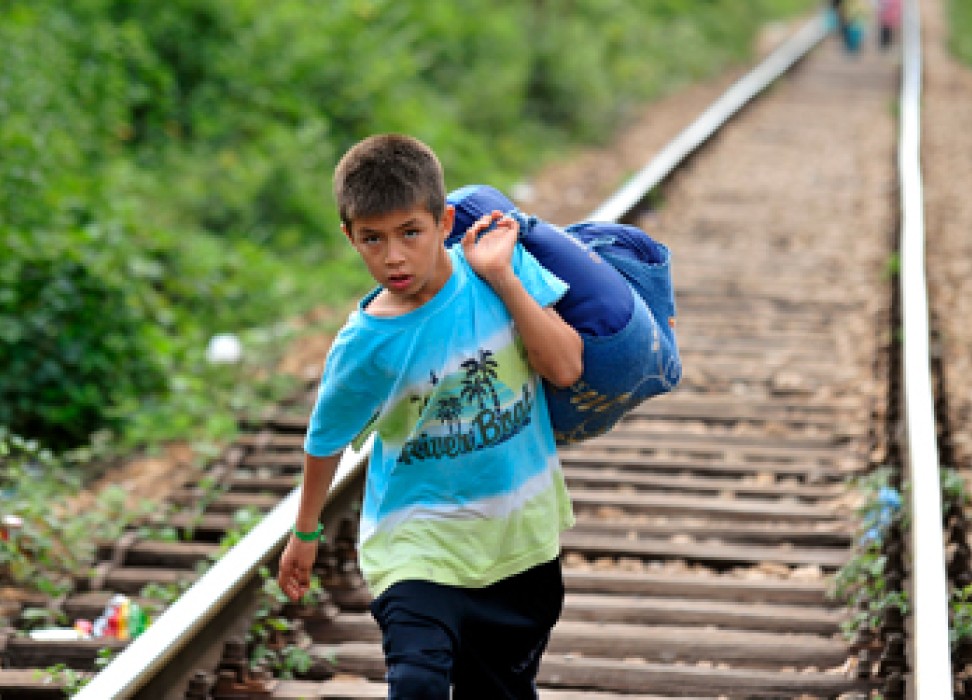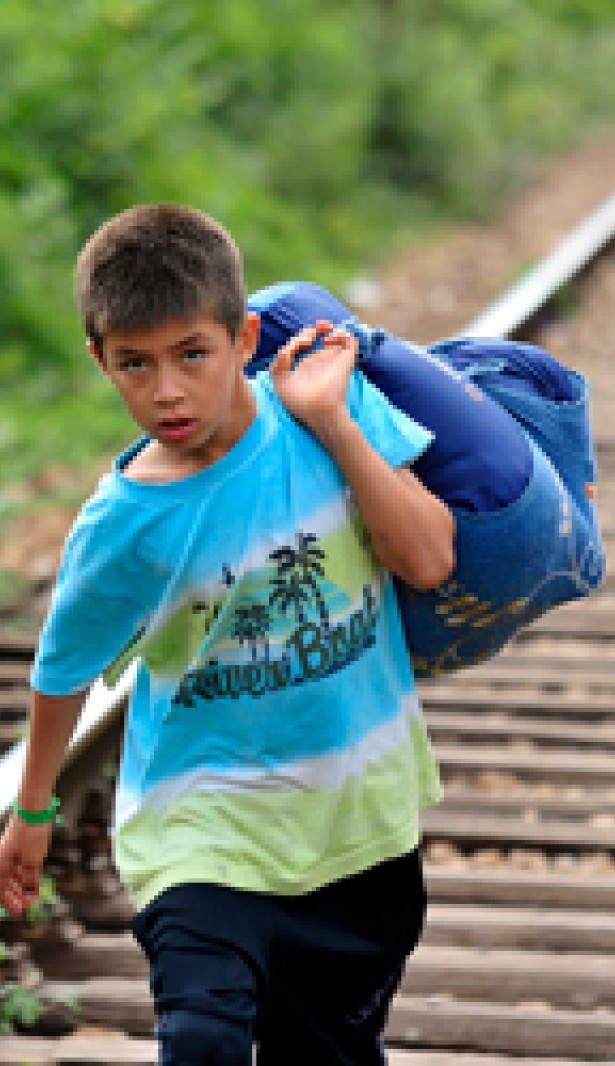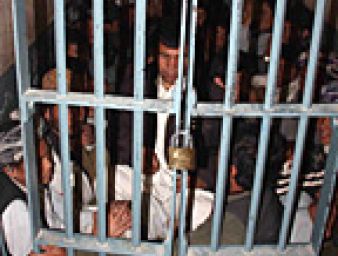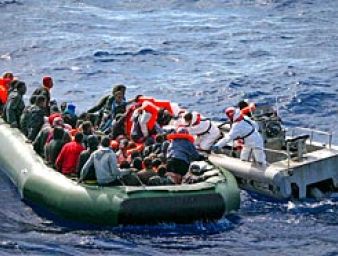Crossing borders: A child’s journey
20 June 2017

“My experiences are the experiences of tens of thousands of unaccompanied children around the world,” said Gholamreza Hassanpour, addressing the 35th session of the Human Rights Council.
His journey began at the age of six, when he and his family fled the conflict in Afghanistan and moved to Iran, where they lived under the constant threat of deportation, unable to afford schooling for Gholam and his brothers. At the age of 16, seeing no future for himself in Iran, Gholam decided to leave one night with four friends, setting out on foot towards Turkey, their sights set on Europe.
“We walked for ten nights and hid inside caves and holes in the mountains during the daytime to avoid arrest,” he said.
Upon arriving at the border with Turkey, they paid a smuggler who said he could help them get to Greece. Along the way, the boys were detained first by Turkish soldiers, then by border guards, who sent them back to Iran, where they once again had to resort to smugglers to help them back across the border.
“Fifty of us were crammed into the back of a truck to take us back into Turkey. The smugglers demanded more payment to release us, threatening to torture and kill us if we didn’t pay. We were trapped, at the mercy of the smugglers, with Iranian border guards on one side and the Turkish border guards on the other.”
The boys paid off the smugglers, who led them back across Turkey towards the western coast near Istanbul. There, they were placed on an inflatable raft to paddle their way across the Aegean Sea to Greece.
“I had never seen the sea before. None of us knew how to swim. We were given rubber floaters and told to stay away from the Turkish coast guard,” Gholam said, recounting his terror boarding the raft. “I tremble now just remembering that part of our journey. But at the time I couldn’t think about how I felt. All I could think about was my goal to reach Greece. And that I had to keep paddling in order to stay alive.”
Braving large waves and strong currents, at times going around in circles no matter how hard they paddled, the boys managed to keep their raft afloat throughout the five-hour crossing to Greece.
Upon arriving on the island of Lesbos they were stopped by border guards, who interrogated them and hit them while demanding they turn over wallets and mobile phones, which they did not have. The boys were then handed over to police, who brought them to the Lesbos detention camp where they were kept for two weeks, sleeping 50 people to a room and allowed out to a courtyard once a day for 30 minutes.
One day, Gholam was told to sign a document authorizing his release from the camp. Without a translator to explain what he was signing, Gholam signed what he later found out was an order for him to leave the country within 30 days.
That was eleven years ago. From the Lesbos detention camp, Gholam made his way to Athens, found a job working as a tailor for 12 hours a day, and found a room to rent with a friend. “It was just big enough for two people to lie down. We couldn’t stand or even sit up in that room,” Gholam recalled.
Eventually, seven years later, with the help of the Greek Council for Refugees (GCR), he acquired refugee status, and two months ago, was granted Greek citizenship. Today, at 27, Gholam is fluent in Greek and works as an interpreter for the GCR, helping other asylum seekers manage the challenges of the asylum process and transition to life in a new country.
Addressing the Human Rights Council during a recent panel discussion at the Council’s 35th session, Gholam described the special challenges of unaccompanied migrant and refugee children.
“Throughout the course of our journeys, the lives of unaccompanied migrant children are in great danger. Smugglers, traffickers, border guards, police, even fellow travellers, often take advantage of us,” Gholam told the Council.
He urged Member States of the Council to support a resolution to ensure better protections for unaccompanied migrant children, including requiring the presence of child protection officers in border areas to help determine a course of action for migrant children.
“Child protection officers – not police or border guards—should be making decisions on what is best for unaccompanied children,” Gholam emphasized in his address to the Council. “This means immediately ending the detention of children simply for the so-called ‘crime’ of migration.”
The High Commissioner for Human Rights Zeid Ra’ad Al Hussein called on Member States of the Human Rights Council to support UN-led efforts to establish a global compact on safe, orderly, and regular migration that would ensure special protections for migrant children.
“We need to listen to migrant children and adolescents, like Gholamreza Hassanpour, who has joined us here today. Above all, they are children -- and while all migrants may be subjected to abuses, the fear and suffering of children and adolescents who migrate is particularly severe,” Zeid said.
The UN Human Rights Office is leading the development within the Global Migration Group of principles and guidelines that aim to ensure the protection of migrant children and other migrants in vulnerable situations as a fundamental obligation of States in their migration governance policies.
“The detention of children is never in the best interest of the child and constitutes a human rights violation. The best interests of the child must guide all relevant policies, including procedures for age assessments, entry, stay or expulsion; access to basic services; family reunification; and appointment of guardians,” Zeid told the Council. “We need to build a global framework that ensures future generations are spared the hellish journeys far too many boys and girls face today.”
TAKE ACTION:
- Sign the #WithRefugees petition: http://www.unhcr.org/withrefugees/petition/
20 June 2017



